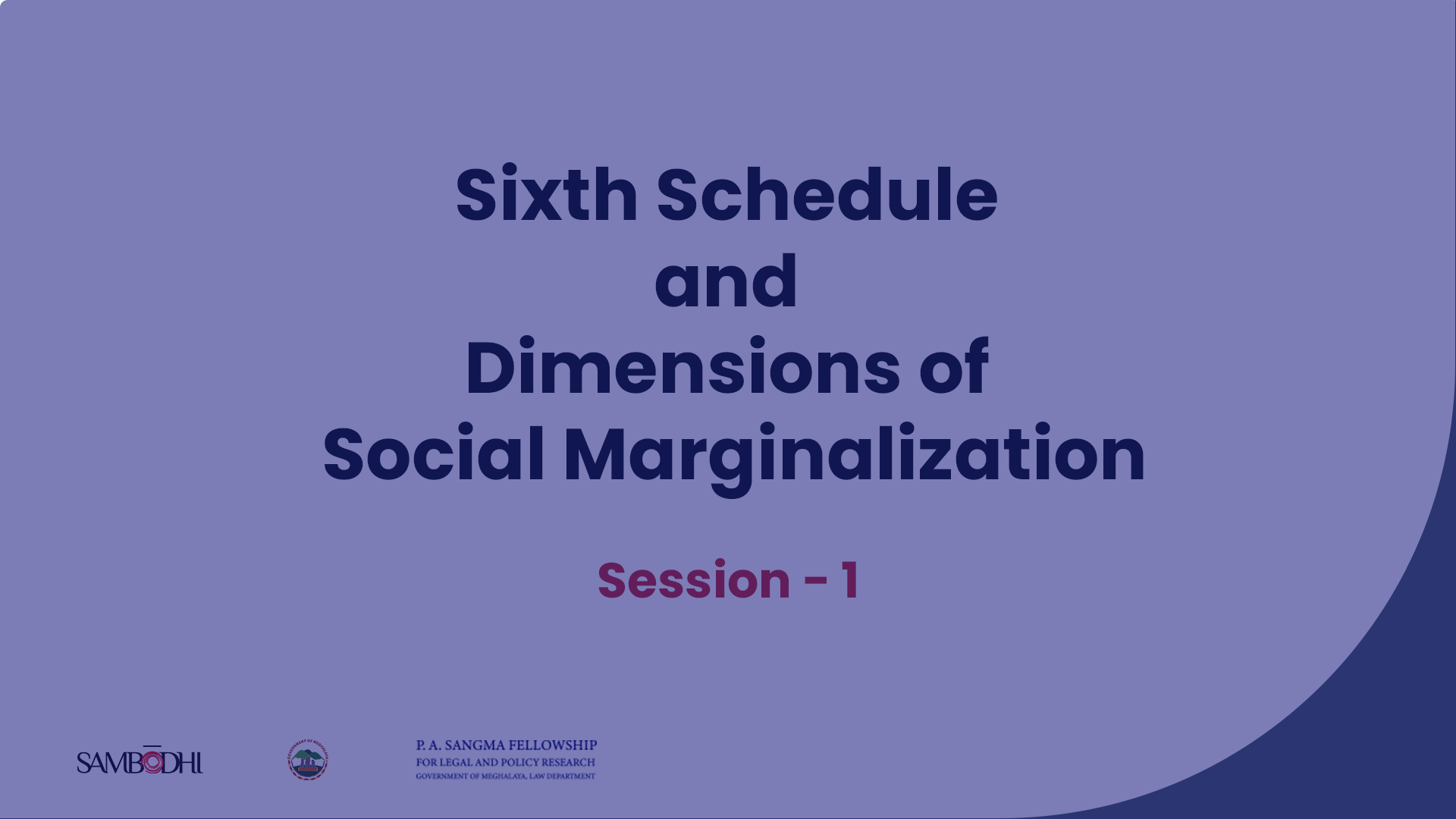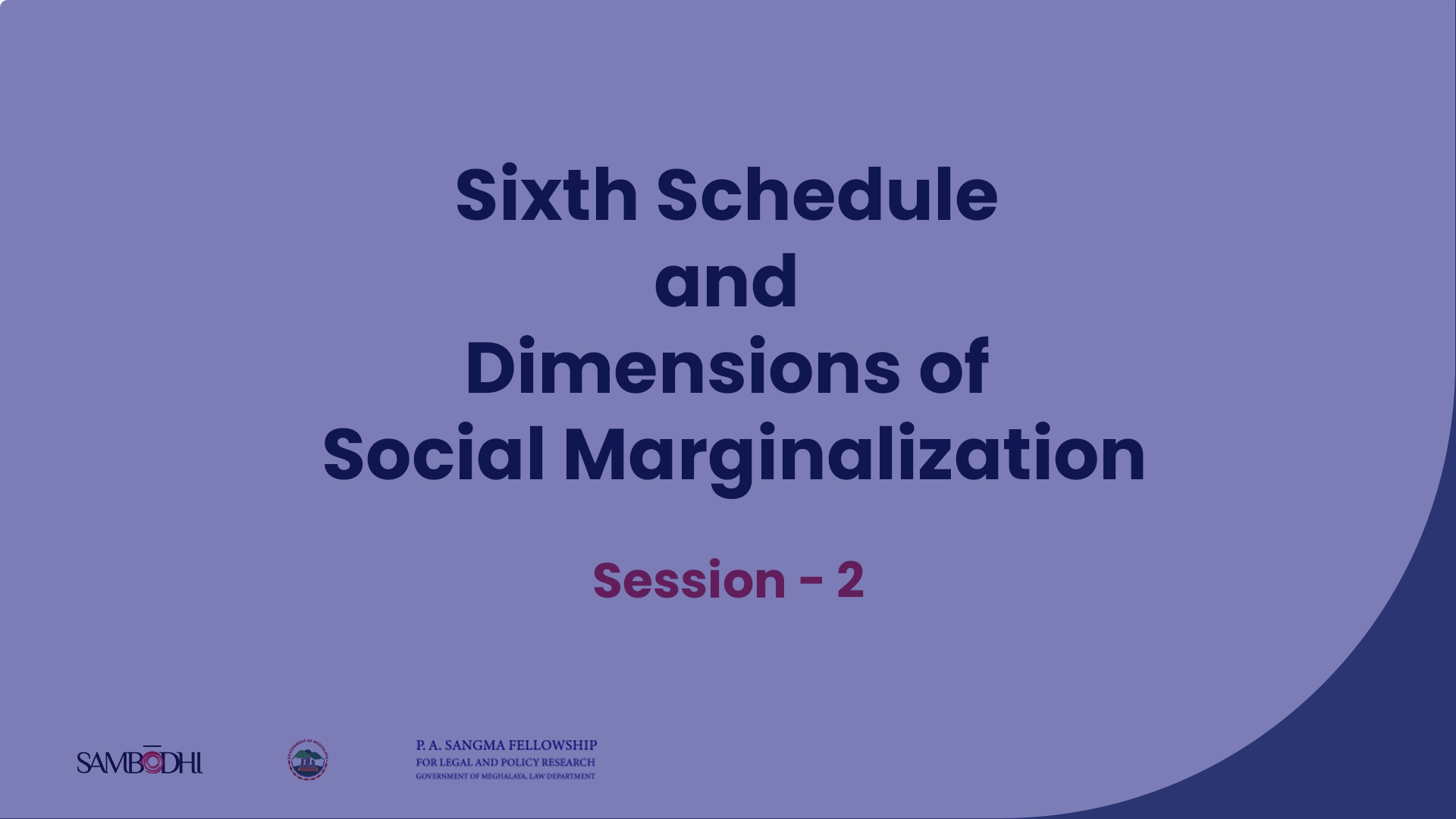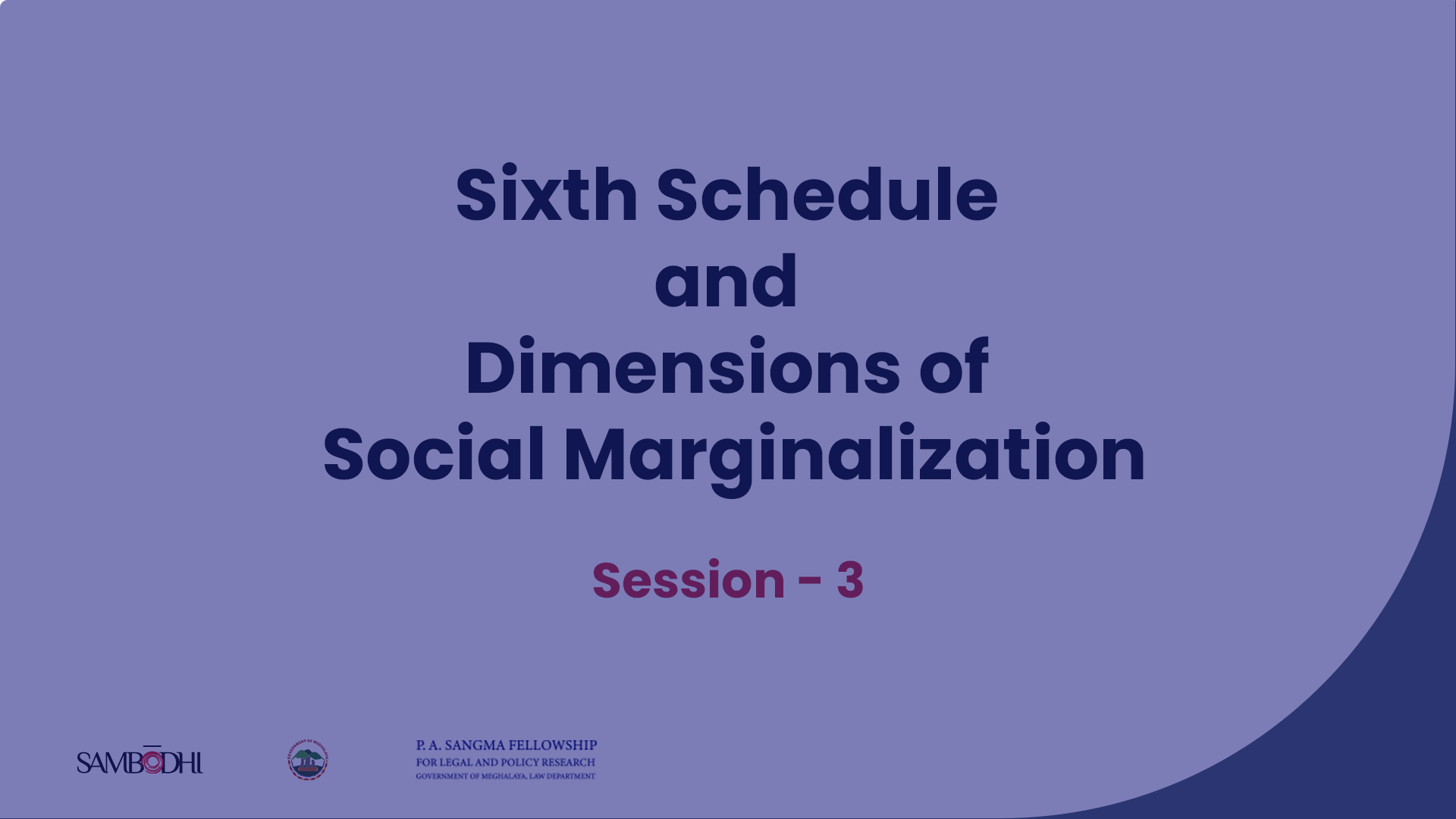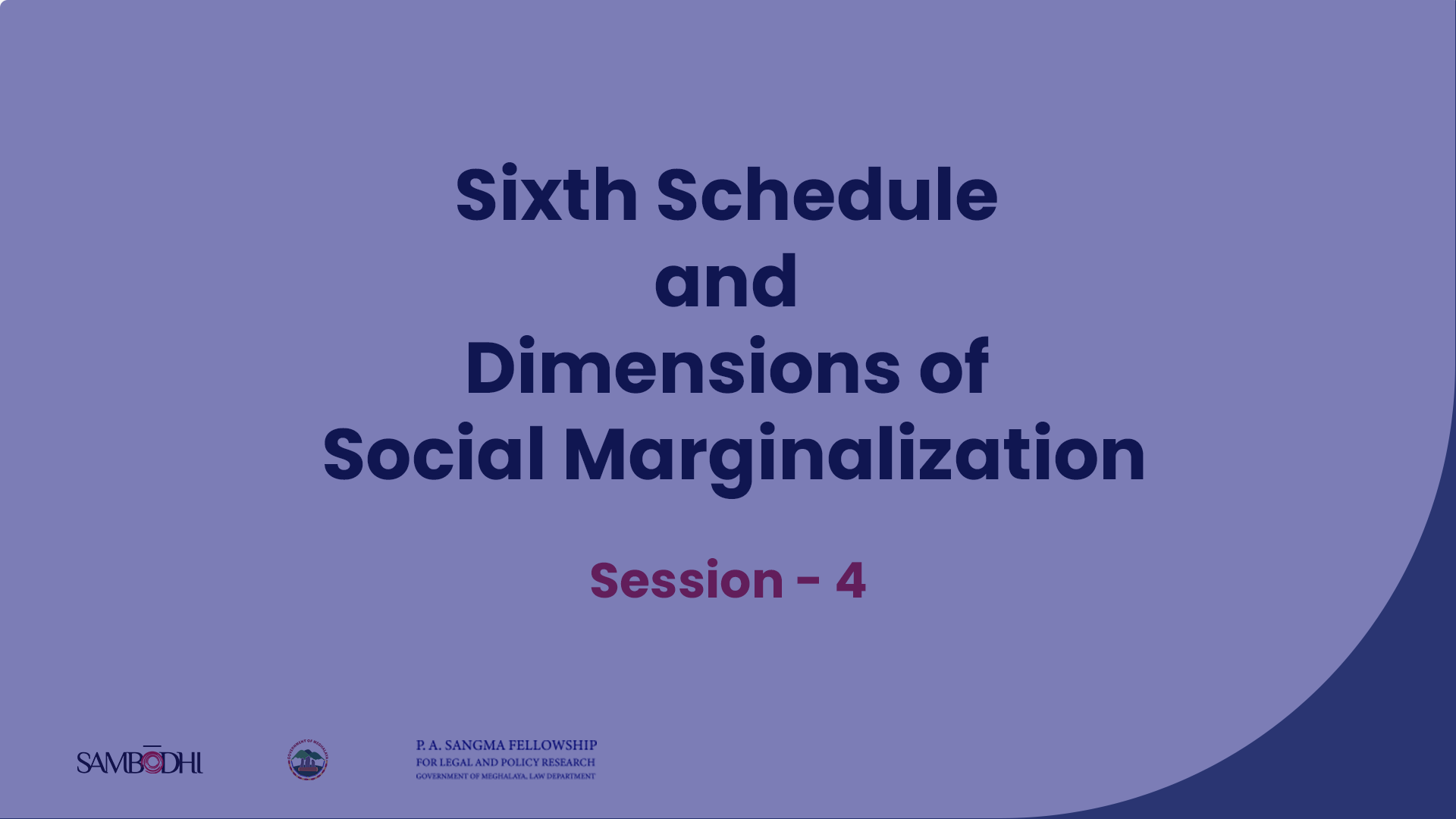Course Details
Social Welfare: Issues and Schemes
From fueling economic growth to empowering citizens, social welfare is the cornerstone of an equitable and compassionate society.
For change agents, championing social welfare is crucial, as it reflects their commitment to improving the well-being of all. By advocating inclusive policies and robust implementation, they not only foster an environment of empathy and equity but also cultivate a society that thrives on the principles of justice and equality.
Sambodhi is committed to empowering key government functionaries with knowledge and skills to shape a more inclusive society. Within this category, we explore a diverse range of modules, including -
- Universal Health Coverage in Meghalaya
- New Education Policy
- Child Protection and Child Rights
- Localization of Sustainable Development Goals in Meghalaya
- The Dimensions of Social Marginalization
- Law and Sixth Schedule: Its Relevance in the Context of North-East India
Sixth Schedule and Dimensions of Social Marginalization
The significance of the 6th schedule becomes apparent when considering its role in addressing social marginalization and ensuring the preservation of distinct identities within the framework of Indian governance. This legislative provision, aimed at safeguarding the rights of tribal communities, offers a mechanism for self-governance and autonomy, allowing marginalized groups to shape their own destinies. In the context of Meghalaya, the course delves into the specific historical, cultural, and socio-political dimensions that have shaped the state's unique journey towards autonomy, fostering a nuanced understanding of identity, self-determination, and the transformative power of the 6th schedule in the region.

Dr Prarthana Saikia
Assistant Professor, School of Development Studies,
Tata Institute of Social Sciences (TISS), Mumbai.
Prarthana Saikia, an anthropologist and writer, is currently an Assistant Professor at the Tata Institute of Social Sciences, Mumbai, with 7 years of teaching experience and 13 years of research focusing on identity, ethnicity, and citizenship. She holds a PhD from IIT Guwahati and has authored four publications, including the award-winning novel "Jatadhari," with contributions to journals such as Economic and Political Weekly (EPW) and Seminar.

 Resource 1
Resource 1

